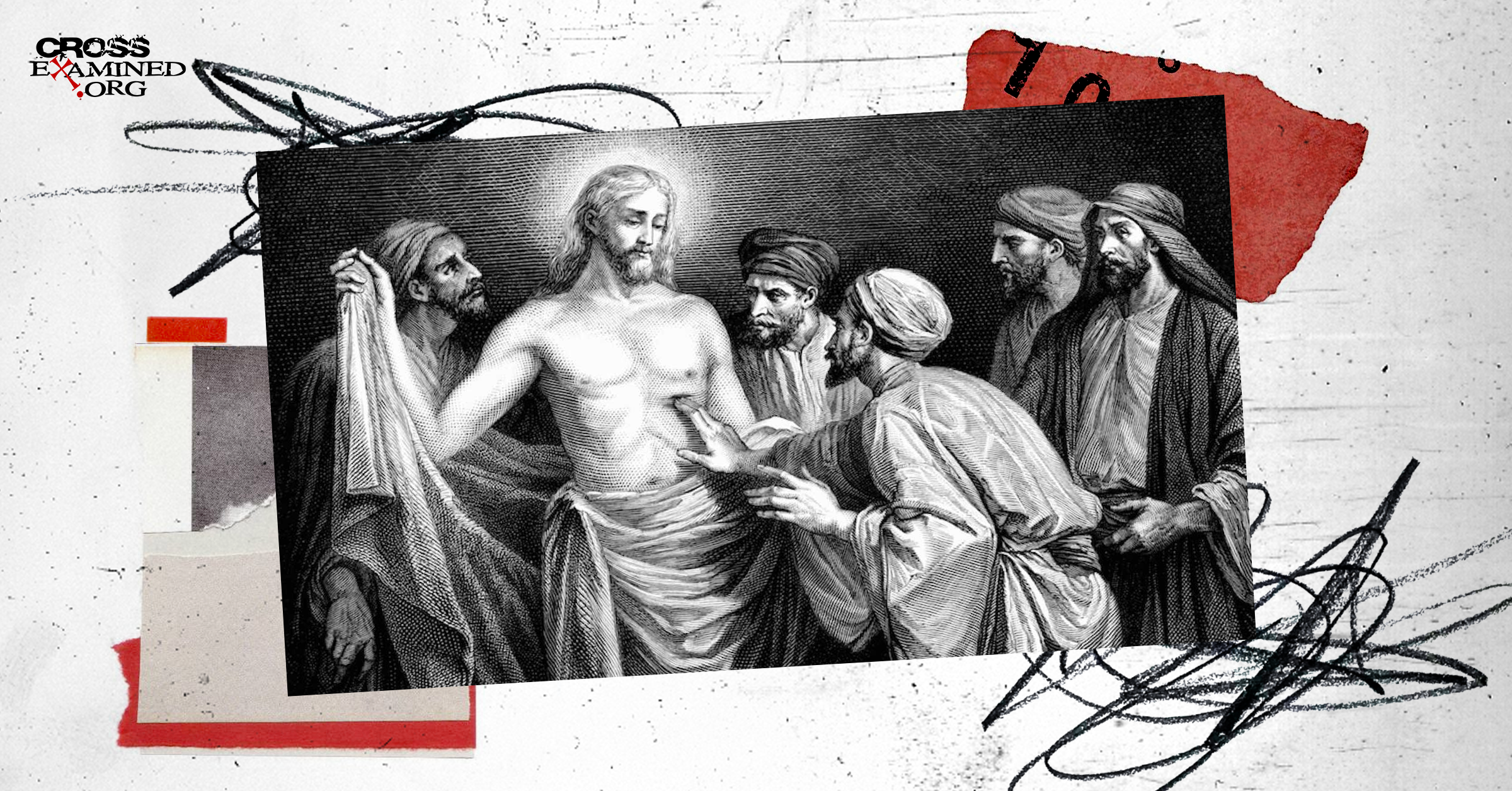Is Your Church A Personality Cult, Part 2
In part one, we looked at how “cult” can refer to a group’s heretical theology (“theological cult”) or to its dangerous practices (“sociological cult). A personality cult is the second type, with personality-driven problems centering on central leader. To discuss the signs of a personality cult, we used the name named Al, as he sees himself as the Alpha, the #1, the head-honcho. And depending on how narcissistic he is, he might honestly believe he’s the only hope for this church’s success. Then we looked six signs of a personality cult:
1. One Charismatic Leader Is THE Face Of The Church
2. Narcissistic Leader
3. Authoritarian Leadership-Model
4. Other Leaders In The Church Are “Yes Men”
5. “Lone Wolf” Approach To Decision-Making
6. Vindictive Church Discipline
Now let’s look at 6 more signs of a personality cult.
7. NO CRITIQUE IS ALLOWED INSIDE THE CHURCH
Another common element in personality cults is how they cannot handle healthy critique. There is no tolerance for members critiquing Al’s theology, teachings, or vision for the church. He wants agreement, solidarity, even uniformity, and he can exert a tremendous amount of pressure to that end. Church members don’t necessarily have to dress alike and live in a commune. But they are strongly encouraged to support the leadership no matter what. Any questioning, disagreement, or failure to cooperate is treated like a malicious power play or as a personal failing. Critics are either villainized or treated as immature, selfish, doubters tangled up in private sin. A bevy of Scriptures can be cited (out of context), supporting this stifling uniformity culture too. “Do not grumble against one another” (James 5:9, NET). “Do not judge so that you will not be judged” (Matthew 7:1). “Do everything without grumbling or arguing” (Philippians 2:14). And of course, “Don’t touch my chosen ones! Don’t harm my prophets!” (Psalm 105:15).
Those verses are not talking about a principled and gracious critique of false teaching or wise critique of a foolish decision. And we could just as easily cite Scriptural evidence about how we should “contend for the faith” (Jude 1:3), “expose” works of darkness (Eph 5:11), and “fight the good fight with faith and a good conscience” (1 Timothy 1:18-20). Plus, the Apostle Paul himself models righteous critique of church leaders when he rebukes St. Peter over a church matter (Galatians 2:11-21)!
8. There’s NO ACCOUNTABILITY FROM OUTSIDE THE CHURCH
Personality cults have little room for critique from their members and even less room for accountability from those outside the congregation. Personality cults may have strained and broken relationships with their parent churches or they may just have a lot of defenses in place to keep denominational authorities in the dark. As for Al, he doesn’t go out looking for accountability partners either. He doesn’t like to have his ideas challenged, and he has no interest in having anyone call him on the carpet. He may have several layers of defense mechanisms to keep people from getting that close to him, yet ironically, he can probably name a half-dozen people whom he claims “hold him accountable.” If he has anything close to an “accountability partner” that person is wrapped around his finger, having long-been manipulated into compliance. Or he just keeps them at arm’s length, never letting them know enough gritty details to have an informed opinion about his personal life or sin-struggles.
9. CULTURE OF SILENCE
Cultures of silence stem from our self-serving biases. We all try to protect our reputation. We all want to be seen in a positive light. We all have this self-serving bias. But personality cults take it way farther than healthy people and churches would. People normally try to hide embarrassing and incriminating details. That’s just how we are. But personality cults take that self-preservation to another level by assuming the best of their leaders, denying all allegations, blaming the victims, and (sometimes) covering up their crimes.
Cultures of silence emerge in personality cults, in part, because Al isn’t humble or willing enough to endure correction. He can wander way off course without any serious accountability pulling him back on track. The further he veers into authoritarianism, and narcissism, the more likely he is going to do something grossly immoral or even criminal because he now thinks he can get away with anything. In many cases, he can. Wicked and criminal behavior goes unchecked because he built a framework of suppression in the church that disciplines whistle-blowers into silence and hides dirty laundry to “protect the ministry” and “preserve unity.”
Group leaders, staff, and leadership boards all have to report to Al before they say anything publicly. Al treats church resources like propaganda, using social media, rumors mills, bulletins, newsletters, and sermons to “get ahead of the narrative” and dictate the “official” story to the church. Members are discouraged from reporting any mischief to outside authorities (unless it benefits Al). Any investigations are conducted in-house often through yes-men that Al hand-picked. Al and his staff are not trying to make things right so much as they are trying to control the narrative and save face.
10. SECRETIVE FINANCES
Another bad sign for churches is when they hide their finances. Healthy churches recognize the need for financial transparency if for no other reason than that they need accountability to reduce temptation. Many churches have crashed and burned because someone was skimming money, or because they just didn’t handle their money wisely. Churches should have nothing to hide with their budget and financial records. In personality cults, Al might never let the congregation see the real budget. Or worse, there might not be a budget because he expects everyone to trust him to make all the financial decisions directly. When financial matters are cloaked in secrecy, it often means the leaders are hiding something. For example, they might be way over budget, have too much debt, Al might be paid too much, or other staffers paid too little. Or perhaps the budget just doesn’t reflect the values of a healthy church.
11. NO SHARED PULPIT
Another bad sign is when the pastor rarely ever shares the pulpit or any related teaching opportunities. He is okay with letting people cover responsibilities that don’t interest him. For example, he may have no interest in the children’s ministry, or in public works projects. So, he might happily share those teaching and leadership opportunities with others. But when it comes to visibly leading the church, from the front, through sermons, vision-casting, and overseeing important meetings, he always takes the head seat at the table. He does not share the pulpit often, but whenever he does, it is either in very small doses or it’s with close allies who are wrapped around his finger.
Al might even let another leader in the church preach, especially when it’s an unpopular topic. For example, it could be about disfellowshipping someone, or fund-raising for the building campaign, or announcing some bad news. The charismatic leader isn’t sharing the pulpit graciously, but out of self-interest. He’s having someone else do his dirty work, so he can keep his hands clean. If he wants the church to double their giving toward a new sanctuary and raising his own pay, he can use the head of the deacon board to preach, heavy-handed, on “sacrificial giving.” When people complain, predictably, they will to the pastor but about the head deacon. Effectively, he’s directing the complaint department to someone else’s desk. Generally, personality cult leaders don’t like sharing the pulpit, and when they do there are strings attached.
12. ABUSE
At this point, it almost goes without saying that personality cults are prime candidates for abuse whether physical, verbal, spiritual, or emotional abuse. When a narcissistic charismatic authoritarian leader is in charge, abusive behavior isn’t far behind. He may not start out abusive. He may have been an innocent, ministry-minded man-of-God in the past. But he now enjoys power and attention a bit too much, and like an addict, he molds his environment and manipulates his relationships to protect his addiction. Also like an addict, he is liable to escalate things resorting to more and more aggressive measures to exert his power, feed his ego, or silence his critics. And that can mean abuse.
***
If you have gone through this list and you think your church might be a personality cult then you don’t have to just roll-over and take it. Awareness is the first step. If you are in a safe and stable place spiritually, and you have the freedom to pull-away then you may just need to transfer to a healthier church or perhaps alert the proper authorities, like the police or presbytery. If, however, you have struggled and suffered in a toxic church then you may need more than a new church.
Resources for recovery:
Spiritual abuse? – Spiritual Abuse Resources (SAR)
Sexual abuse? – Lydia Discipleship Ministries
Substance abuse? – National Association for Christian Recovery (NACR)
Want More Resourcs on Abusive Churches?
- Spiritual Abuse Recovery Resources [Resource Library]
- Mary J. Yerkes, “Emotional Abuse In the Local Church” [Article]
- Charles Stone, “The Narcissistic Pastor: Ten Signs That You may Be One”
- Thom Rainer, “14 Symptoms of Toxic Church Leaders” [Article] and Podcast
- Nichole Cochran, “21 Signs Your Church Has a Toxic Team Culture” [Article]
- Stephen Arterburn, Toxic Faith [Book]
David Johnson and Jeff Van Vonderen, The Subtle Power of Spiritual Abuse [Book]
Recommended resources related to the topic:
Another Gospel? by Alisa Childers (book)
Jesus, You and the Essentials of Christianity by Frank Turek (INSTRUCTOR Study Guide), (STUDENT Study Guide), and (DVD)
How to Interpret Your Bible by Dr. Frank Turek DVD Complete Series, INSTRUCTOR Study Guide, and STUDENT Study Guide
__________________________________________________________________________________________________________________________
Dr. John D. Ferrer is an educator, writer, and graduate of CrossExamined Instructors Academy. Having earned degrees from Southern Evangelical Seminary and Southwestern Baptist Theological Seminary, he’s now active in the pro-life community and in his home church in Pella, Iowa. When he’s not helping his wife Hillary Ferrer with her ministry Mama Bear Apologetics, you can usually find John writing, researching, and teaching cultural apologetics.











